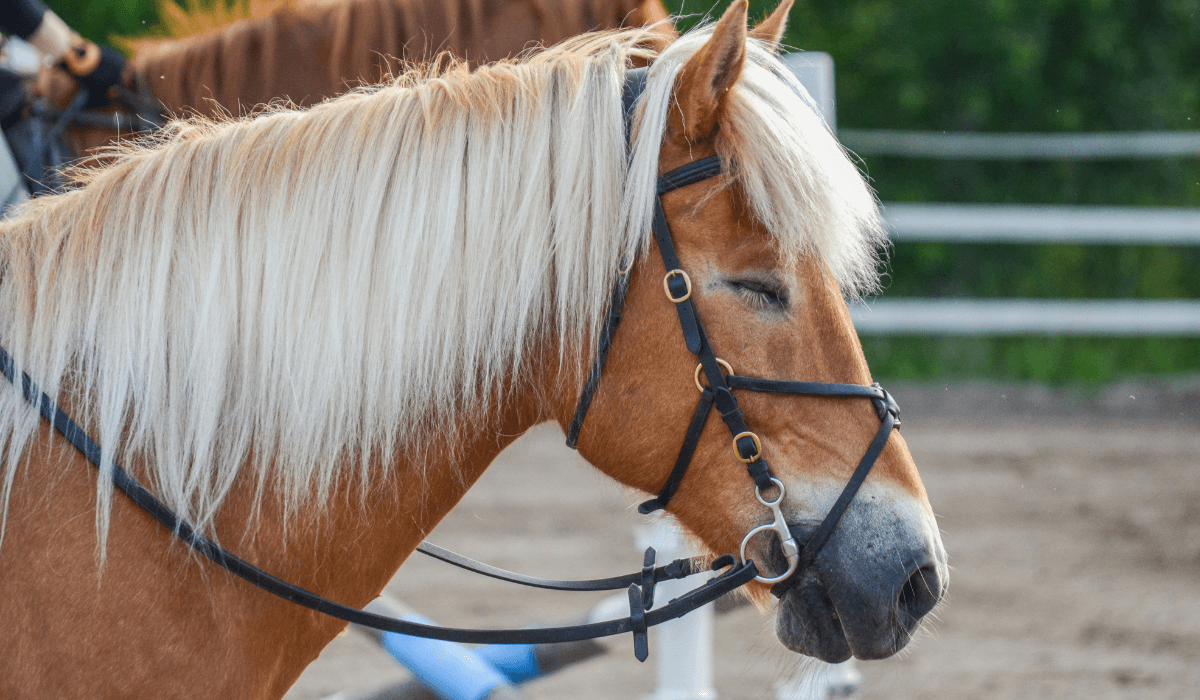Do Horses Sleep Standing up

If you’re a horse lover, you’ve probably wondered at some point whether horses sleep standing up or lying down. It’s a common question, and the answer may surprise you. In this article, we’ll explore the sleeping habits of horses and dispel some common myths.
What are the sleeping habits of horses?
Horses are unique creatures when it comes to sleeping. They are what is known as “facultative” sleepers, meaning that they can sleep both standing up and lying down. Horses have a natural ability to lock their legs in place, called the “stay apparatus,” which allows them to remain standing even when they are sleeping.
However, horses do not sleep for long periods standing up. They only doze off for short periods of time, usually no more than a few minutes. This type of sleep is called “slow-wave sleep,” and it allows the horse to rest and relax while still maintaining its balance.
Why do horses sleep standing up?
The ability of horses to sleep standing up is an adaptation that has evolved over time. In the wild, horses were prey animals and needed to be alert at all times to avoid predators. Sleeping standing up allowed them to rest while still being able to quickly react to any danger that might approach.
In addition, sleeping standing up allowed horses to conserve energy. Horses are grazing animals and need to eat almost constantly to maintain their energy levels. Sleeping standing up allowed them to rest and conserve energy while still being able to graze and move around.
Can horses sleep too much?
Just like humans, horses can sleep too much. If a horse is sleeping more than usual or seems lethargic, it could be a sign of an underlying health issue. It’s essential to monitor your horse’s sleeping habits and alert your veterinarian if you notice any changes.
Do all horses sleep the same way?
Not all horses sleep the same way. Some horses are more comfortable sleeping standing up, while others prefer to lie down. Additionally, some horses may sleep more than others, depending on their age, health, and lifestyle.
Can horses sleep with their eyes open?
Yes, horses can sleep with their eyes open. Horses have a unique ability to sleep with one eye open and one eye closed. This allows them to remain aware of their surroundings and quickly respond to any potential danger.
Factors that Can Affect Horses’ Sleep, Including Stress, Noise, and Light
As with humans and many other animals, there are various factors that can affect a horse’s ability to sleep well. These factors can have both short- and long-term effects on a horse’s health and well-being, so it’s important for horse owners and caretakers to be aware of them.
- Stress is one of the primary factors that can interfere with a horse’s sleep. Horses are sensitive animals that can easily become stressed by changes in their environment or routine. This stress can manifest in a variety of ways, including through increased heart rate, sweating, and pacing, all of which can make it difficult for a horse to relax and fall asleep. Additionally, stress can lead to the production of stress hormones such as cortisol, which can disrupt the sleep cycle and lead to further sleep disturbances.
- Noise is another factor that can affect horses’ sleep. Loud or sudden noises can startle a horse and cause it to wake up, interrupting its sleep cycle. Even low-level background noise can make it harder for horses to fall and stay asleep. This is because horses are prey animals that are naturally attuned to their surroundings, and any noise can trigger a response in their nervous system that makes it difficult to relax.
- Light is also an important factor in horses’ sleep. Horses are sensitive to changes in light and dark, and their bodies use these cues to regulate their sleep-wake cycles. Exposure to light at night, such as from artificial lighting or a full moon, can disrupt a horse’s sleep and make it harder for them to get the rest they need. Additionally, horses are more sensitive to blue light than humans, so exposure to screens or other blue-light-emitting devices can also have a negative impact on their sleep.
To promote healthy sleep habits in horses, it’s important to minimize the impact of these factors as much as possible. This can include providing a quiet and calm sleeping environment, reducing exposure to bright light at night, and establishing a regular sleep routine that allows horses to feel safe and secure. By taking these steps, horse owners and caretakers can help ensure that their animals get the rest they need to stay healthy and happy.
Conclusion
In conclusion, horses are fascinating animals when it comes to their sleeping habits. They can sleep both standing up and lying down, and their unique ability to lock their legs in place allows them to rest while still maintaining their balance. While horses may doze off for short periods standing
RECENT ARTICLES
